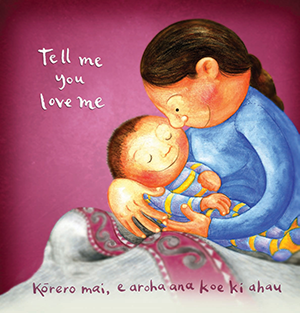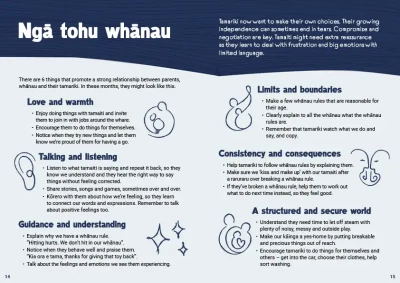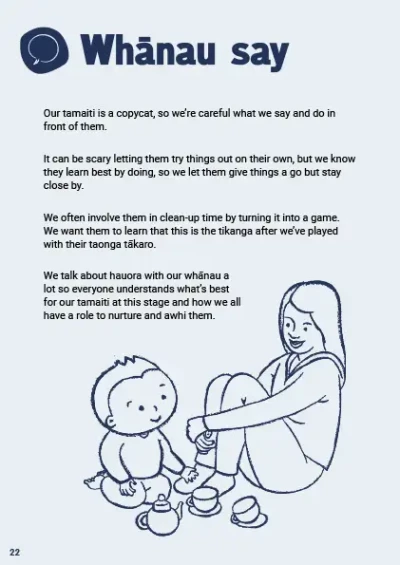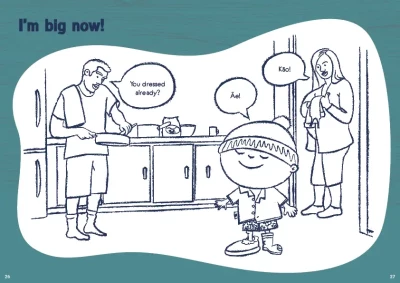
Growing independence
Toddlers want to make their own choices, which often requires compromise. Parents need good strategies to support the growing independence of tamariki while avoiding tantrums over making choices.
Pēpi will now want to make their own choices more often about what they want to eat, play with and even wear. This stage of growing independence and self-discovery can sometimes end in tears.
Compromise and negotiation are the key words for this time.
Balancing safety and freedom
Parents can find it difficult to ‘let go’, allowing their tamaiti the freedom to explore independently. This shows they understand the risks to their child’s safety during this developmental stage, but it can also be restrictive and limiting. The goal for parents is to find the balance between safety and freedom. On page 22 of Te Kōhuri 1, whānau say:
"It can be scary letting them try things out on their own, but we know they learn best by doing, so we let them give things a go but stay close by."
Good support networks
Supervision of tamariki at this stage is so important. But it can sometimes be difficult in busy homes with other children and lots going on. Older children are often in kaitiaki roles for younger siblings. Tuakana / teina relationships can play an important role in keeping tamariki safe.
On pages 15, 22 and 23 of the booklet Aroha in action, whānau are reminded of their role in ensuring the safety of mokopuna.
"Parents with good support networks are more likely to feel positive about their children and ask for help when they need it."
Children test everything
Tā ngā tamariki ana mahi wāwāhi tahā
The calabash or gourd held precious liquids and was valued. The gourd is a metaphor for rules, methods or beliefs. So children have to test everything. That is their job. Adults have to accept that.
Look on the Mana Ririki(external link) web page to learn more about Māori ancestors’ beliefs about tamariki.
Wanting to do things for themselves, without always having the necessary skills or ability to say what they want, can cause toddlers to feel frustrated. Te Kōhuri 1, page 15, says that tamariki might need extra reassurance as they learn to deal with frustration and big emotions with limited language.
The frustration might not just belong to the little person either. Parents can often feel additional stress as they adjust to their toddler’s increasing demand to be independent.
Tamariki asserting themselves
Have a look at the cartoon on pages 26–27 of the Whakatipu booklet Te Kōhuri 1 with parents. Ask them:
- What do you notice in the picture?
- What do you think is going to happen next?
- What can adults do to avoid raruraru over making choices?
- What have you tried?
- What works best?
Go back to the cartoon on pages 26–27 of the booklet. What strategies could parents use in this specific situation?
Maybe:
- Leave out a choice of two outfits rather than a wider range of options for their tamaiti?
- Say something like: “That pōtae looks warm, but your slippers might get wet outside?”
- Ignore what they are wearing completely – there is a chance those items of clothing will be taken off soon anyway.
Learn more
Helpful resources for whānau
-
Growing Independence (1-2 year olds) - Part 1<
Growing Independence (1-2 year olds) - Part 1These activities are recommended for children in the age groups under five, and show how to get children moving - and consequently, learning.
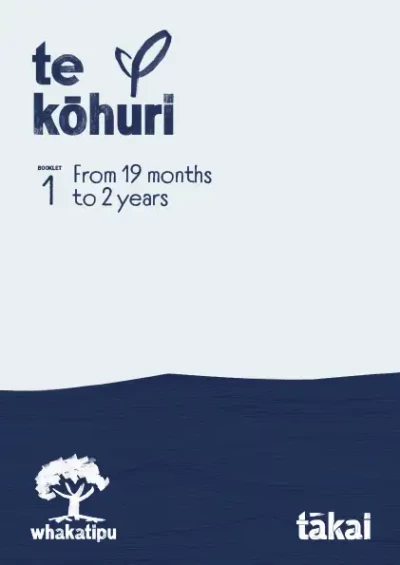 pdf 10 MB
pdf 10 MB
